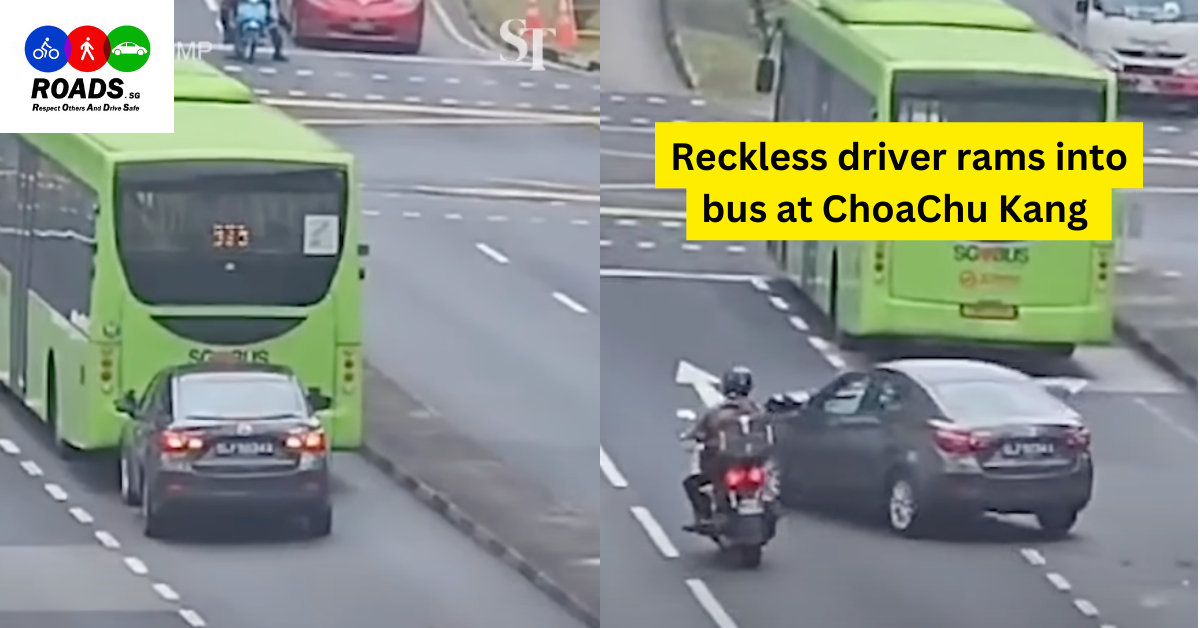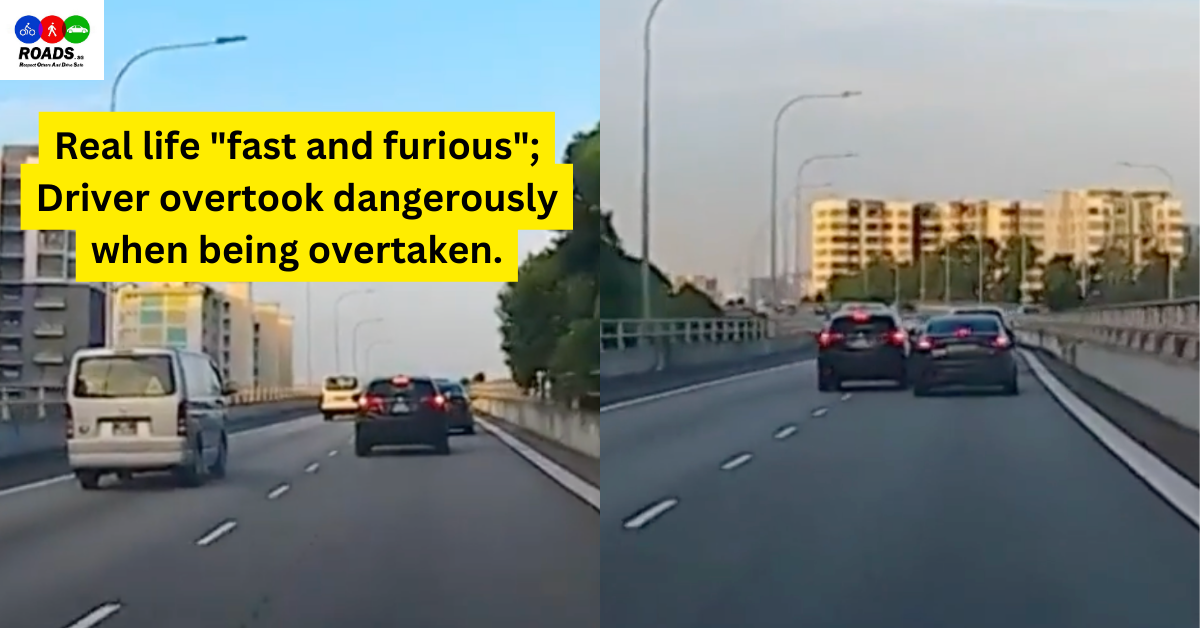https://www.facebook.com/SGRVigilante/videos/485770922038518/
Source: SG Road Vigilante
Driver of SJE3372Z Toyota Vellfire must have had an earlier unpleasant encounter before this and decided to stop his car and approach car cam in the middle of Jalan Besar Road.
Did you know there isn’t a specific road rage law in Singapore?
There is no specific law in relation to road rage in Singapore. Most laws focus on the confrontational actions of parties following an act of “rage.” Therefore, although road rage itself is not a criminal offence, it is possible for individuals in a road rage case to be charged with other criminal offences.
What is “Road Rage”?
Road rage is an incidence of violence perpetrated by road users. It is a result of real or perceived provocation by other road users, stemming from differences that arise in the course of the shared use of roads.
Such differences may involve aggressive and ungracious acts of driving such as honking, tailgating, speeding, making angry gestures, preventing a vehicle from changing lanes, etc.
Road rage usually happens when the driver, or passengers, alight from their vehicles with the intention to harm each other in a moment of anger. However, it is not necessary for harm to be committed for it to be considered road rage. Other factors such as the disruption caused to the public will also be taken into consideration in a case of road rage.
Is Road Rage a Criminal Offence in Singapore?
Most laws focus on the confrontational actions of parties following an act of “rage.” Therefore, although road rage itself is not a criminal offence, it is possible for individuals in a road rage case to be charged with other criminal offences.
The following are some of these offences and their respective penalties:
Mischief
Causing Hurt by Rash Act
Voluntarily Causing Hurt
Voluntarily Causing Grievous Hurt
What to Do If You are a Victim of Road Rage in Singapore
If you are caught in a situation of aggressive driving, you should try to contain the situation by disengaging with the provocateur.
Try to switch lanes to avoid contact with the provocateur. If the provocateur is in pursuit, drive to a nearby police station or pull into a busy parking lot and call the police. Having more witnesses may deter the provocateur from being impulsive. When doing so, stay in your car and keep your windows rolled up to prevent the provocateur from harming you.
When the police arrives, you should inform the police of the situation. If they deem the provocateur to have committed an arrestable offence, he may be arrested without a warrant. The offender may then be charged in court.
However, if a non-arrestable offence (e.g. voluntarily causing hurt) may have been committed, the provocateur may not be arrested immediately. If you want action to be taken against the provocateur, you may then need to make a police report of the incident, providing any medical reports of any injury you have sustained.
Together with a copy of your police report, you can then submit a Magistrate’s Complaint to the State Courts. The Magistrate will then decide whether to issue a warrant for the provocateur’s arrest and pursue the matter.
Alternatively, you may submit a traffic violation report to the Traffic Police online. To allow the Traffic Police to look into the matter, you will be required to produce corroborative evidence, such as photographs or videos of the violation, and/or an independent eyewitness who is willing to testify in court.
For full article please visit: Singapore Legal Advice







